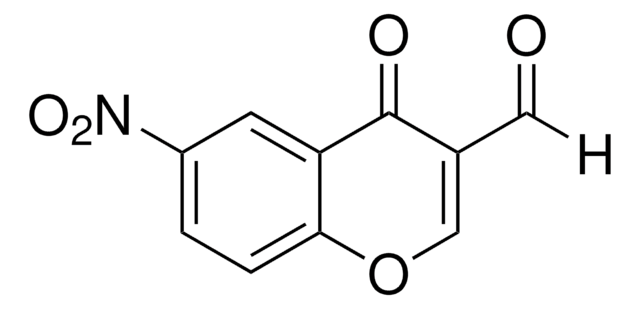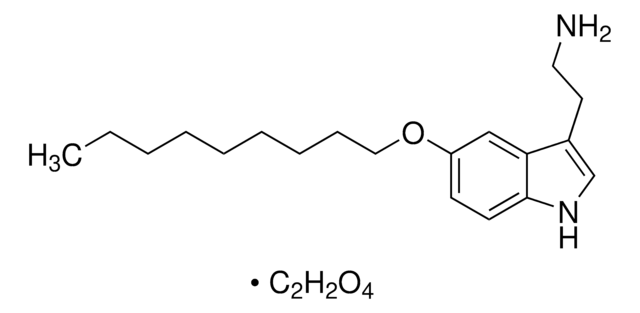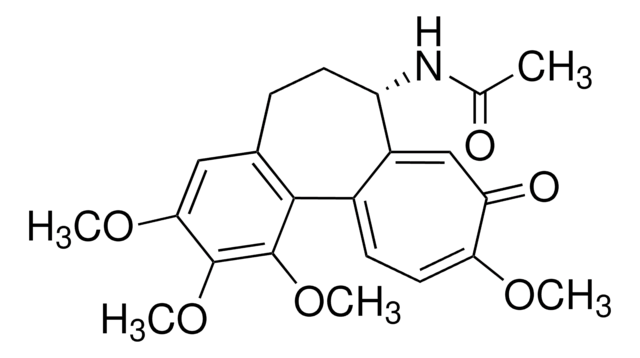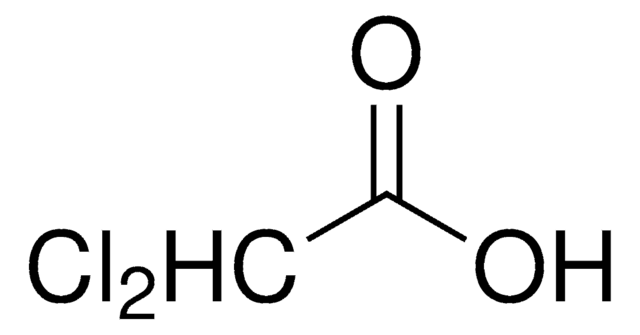17-10262
ChIPAb+ JMJD1C - ChIP Validated Antibody and Primer Set
from rabbit, purified by affinity chromatography
Sinónimos:
Chip Antibody and primer set, JMJD ChIP, JMJD, jumonji domain containing 1C, thyroid receptor interacting protein 8, probable JmjC domain-containing histone demethylation protein 2C, thyroid hormone receptor interactor 8, Thyroid receptor-interacting protein 8, Jumonji domain-containing protein, jumonji domain containing 1C ChIP
About This Item
Productos recomendados
biological source
rabbit
Quality Level
antibody form
affinity purified immunoglobulin
clone
polyclonal
purified by
affinity chromatography
species reactivity
human
species reactivity (predicted by homology)
chimpanzee (based on 100% sequence homology), orangutan (based on 100% sequence homology), rhesus macaque (based on 100% sequence homology), rabbit (based on 100% sequence homology)
manufacturer/tradename
ChIPAb+
Upstate®
technique(s)
ChIP: suitable
immunocytochemistry: suitable
western blot: suitable
NCBI accession no.
UniProt accession no.
shipped in
dry ice
Gene Information
human ... JMJD1C(221037)
General description
The ChIPAb+JMJD1C set includes the JMJD1C antibody, a Normal Rabbit IgG, and control primers which amplify a 110 bp region of ChIP Primers, human β-globin. The JMJD1C and negative controls are supplied in a scalable "per ChIP" reaction size and can be used to functionally validate the precipitation of JMJD1C -associated chromatin.
Immunogen
Application
Representative lot data.
Sonicated chromatin prepared from HeLa cells (1 X 10E6 cell equivalents per IP) were subjected to chromatin immunoprecipitation using 1.4 µg of either Normal Rabbit IgG or Anti-JMJD1C and the Magna ChIP® A Kit (Cat. # 17-610). Successful immunoprecipitation of JMJD1C associated DNA fragments was verified by qPCR using ChIP Primers, human β-globin as a positive locus, and β-actin promoter primers as a negative locus. (Figure 2). Data is presented as percent input of each IP sample relative to input chromatin for each amplicon and ChIP sample as indicated.
Please refer to the EZ-Magna ChIP A (Cat. # 17-408) or EZ-ChIP (Cat. # 17-371) protocol for experimental details.
Western Blot Analysis:
Representative lot data.
HeLa nuclear extract was probed with Anti-JMJD1C (1 μg/mL). Proteins were visualized using a Donkey Anti-Rabbit IgG secondary antibody conjugated to HRP and a chemiluminescence detection system.
Arrow indicates JMJD1C (~284 kDa). (Figure 3).
Immunocytochemistry Analysis:
Representative lot data.
Confocal fluorescent analysis of HeLa cells using Anti-JMJD1C (Red). Actin filaments have been labeled with Alexa Fluor 488 dye -Phalloidin (Green). Nucleus is stained with DAPI (Blue). This antibody positively stains the nucleus. (Figure 4).
Epigenetics & Nuclear Function
Histone Modifying Proteins
Packaging
Quality
Representative lot data.
Sonicated chromatin prepared from HeLa cells (1 X 10E6 cell equivalents per IP) were subjected to chromatin immunoprecipitation using 1.4 µg of either Normal Rabbit IgG, or Anti-JMJD1C and the Magna ChIP® A Kit (Cat. # 17-610).
Successful immunoprecipitation of JMJD1C associated DNA fragments was verified by qPCR using ChIP Primers, human β-globin (Figure 1).
Please refer to the EZ-Magna ChIP A (Cat. # 17-408) or EZ-ChIP (Cat. # 17-371) protocol for experimental details.
Target description
Physical form
Concentration: 0.7 mg/mL
Normal Rabbit IgG. One vial containing 125 µg of Rabbit IgG in 125 µL of storage buffer containing 0.05% sodium azide. Store at -20°C.
ChIP Primers, human β-globin. One vial containing 75 μL of each primer (5 μM) specific for the human β-globin
promoter. Store at -20°C.
FOR: AGG ACA GGT ACG GCT GTC ATC
REV: TTT ATG CCC AGC CCT GGC TC
Storage and Stability
Note: Variability in freezer temperatures below -20°C may cause glycerol containing solutions to become frozen during storage.
Analysis Note
Includes normal rabbit IgG and primers specific for human β-globin.
Other Notes
Legal Information
Disclaimer
Storage Class
10 - Combustible liquids
Certificados de análisis (COA)
Busque Certificados de análisis (COA) introduciendo el número de lote del producto. Los números de lote se encuentran en la etiqueta del producto después de las palabras «Lot» o «Batch»
¿Ya tiene este producto?
Encuentre la documentación para los productos que ha comprado recientemente en la Biblioteca de documentos.
Nuestro equipo de científicos tiene experiencia en todas las áreas de investigación: Ciencias de la vida, Ciencia de los materiales, Síntesis química, Cromatografía, Analítica y muchas otras.
Póngase en contacto con el Servicio técnico






